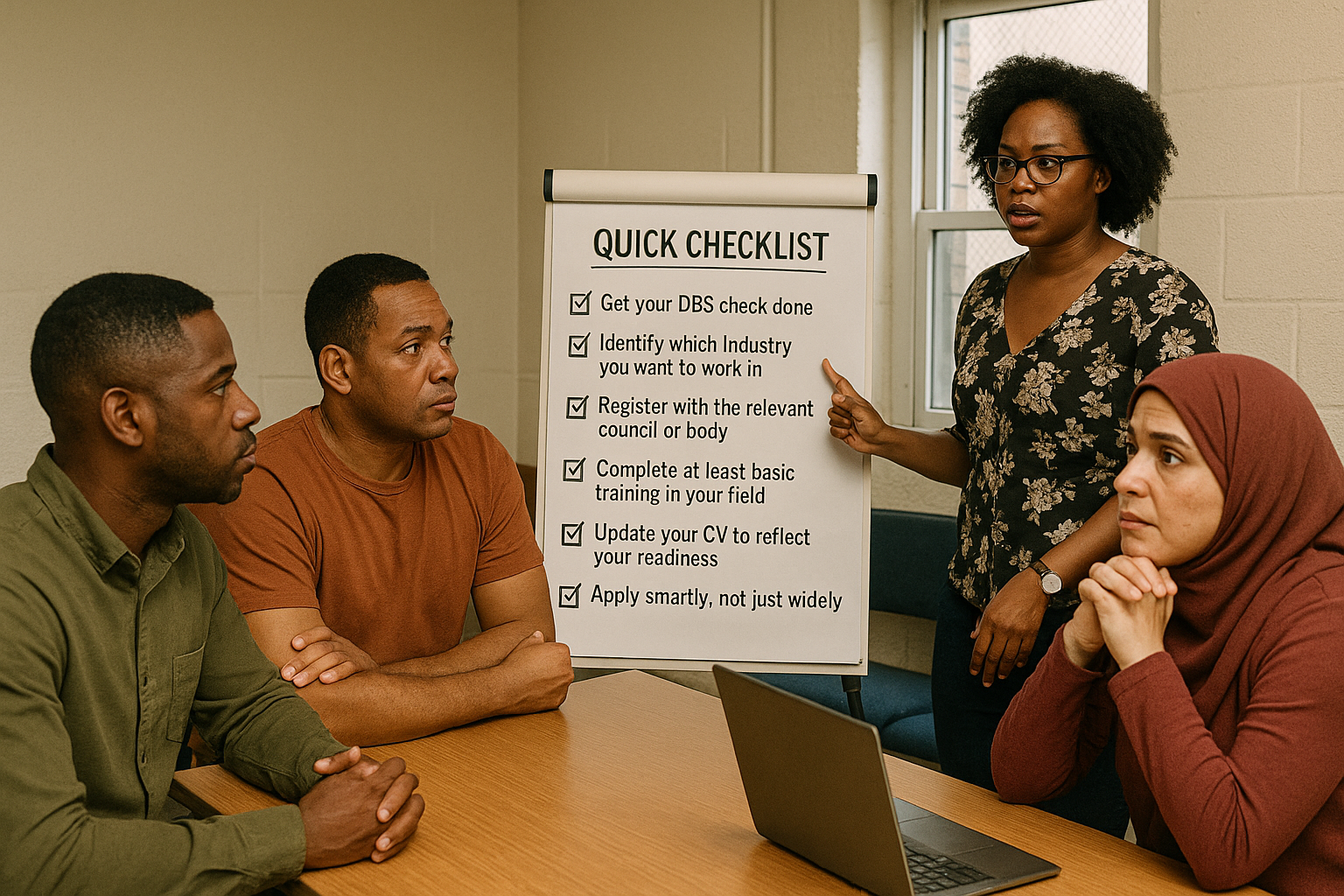When I first arrived in the UK, I had no job for three long months.
It wasn’t because there were no opportunities. It wasn’t even because I lacked experience. It was simply because I didn’t understand the system. I didn’t do what was necessary to make myself employable in this environment. And I want you to avoid the same mistake.
Today, I have multiple jobs. Not because I’m lucky, but because I took action. I learned how the UK job market works and prepared myself for it. And so can you.
Whether you’re already in the UK or planning to move, this post is your reality check and your action plan. If you want a job, especially in the UK, you need more than just qualifications. You need readiness. Let’s break it down by industry so you know exactly what to do.
1. Teaching Jobs: Do You Have What It Takes to Enter a Classroom?
If your passion or background is in teaching, don’t wait for a school to hand you an opportunity. Take the steps to become employable right now.
What to Do:
Apply for a DBS (Disclosure and Barring Service) Check – This is a police clearance that shows you have no criminal record. Almost all teaching and childcare roles require it.
Register with the Education Workforce Council (EWC) – In Wales, this registration is mandatory for anyone who wants to work in education. Similar councils exist for England and Scotland.
Complete basic safeguarding or child protection training – Many schools want this even before you start.
Why It Matters:
When a school or agency sees that you’re already cleared and registered, onboarding you becomes faster. You’re not “just another applicant”—you’re ready to work.
2. Care Jobs: Compassion Alone Isn’t Enough—You Need Certification
Care jobs are among the most available in the UK, especially for people seeking sponsorship. But not everyone who wants a care job is actually ready to work in care.
What to Do:
Register with Social Care Wales (SCW) – For care roles in Wales, registration shows you meet the professional standards.
Complete Basic Care Training – You can find free or low-cost online training for:
Manual handling
Medication awareness
Infection control
Safeguarding adults
Get your DBS done – Again, this is a must.
Why It Matters:
If you show up with the required training and registration already sorted, your application jumps ahead. Employers love people they can deploy quickly.
3. Construction Jobs: The CSCS Card Is Your First Step
Thinking about construction work? You won’t get far without the CSCS (Construction Skills Certification Scheme) card.
What to Do:
Book and pass the Health, Safety & Environment Test
Apply for your CSCS card online
Consider training for a specific trade if you want higher pay (e.g., plastering, scaffolding)
Why It Matters:
The construction industry in the UK is strict about safety and regulations. Without your CSCS card, you won’t even be allowed on most sites.
4. Security Jobs: Get That Badge
If you’re eyeing the security industry, it’s not enough to “look strong” or “have experience.” The UK takes security roles very seriously, and all guards must be licensed.
What to Do:
Apply for your SIA (Security Industry Authority) badge
This requires you to:
Be over 18
Pass a criminal background check
Complete a recognised SIA training course
Why It Matters:
With the right license, you can work in event security, corporate security, and even close protection roles. The badge opens the door.
5. Support Work: Especially in Mental Health or Special Needs? PMVA is Key
There are many support worker roles across the UK, especially in hospitals, care homes, and mental health facilities. But most of them require a specific type of training.
What to Do:
Take PMVA (Prevention and Management of Violence and Aggression) training
This equips you with the skills to safely manage patients who may become aggressive
Why It Matters:
Employers in healthcare are often short-staffed but legally responsible for training their employees. If you come already trained, you’re a dream candidate.
The Mistake I Made—and What You Can Learn From It
When I arrived in the UK, I thought my experience and enthusiasm were enough. I thought I could just apply for jobs and get called for interviews. But every employer wanted the same things: “Are you registered?” “Do you have your clearance?” “Have you done the required training?”
At first, it felt like a lot—but the truth is, it’s just the system. And once I started ticking those boxes, doors opened. Fast.
Don’t Wait. Prepare Now.
Here’s a quick checklist for anyone job-hunting in the UK:
✅ Get your DBS check done
✅ Identify which industry you want to work in
✅ Register with the relevant council or body
✅ Complete at least basic training in your field
✅ Update your CV to reflect your readiness
✅ Apply smartly, not just widely
Final Words: Your Effort Determines Your Access
There are thousands of job vacancies across the UK—but employers are looking for people who are ready to start, not people who are still asking questions like, “What’s a CSCS card?” or “How do I get registered?”
You don’t need to have a UK accent. You don’t even need decades of experience. You just need to understand the entry requirements for your chosen field and follow through.
It might feel like too much to do, but take it one step at a time. Each certificate, each registration, and each application brings you closer to a job you actually want.
You’ve come too far to let ignorance or inaction delay your progress.
So ask yourself honestly today:
Are you doing what you ought to do to get that job?








